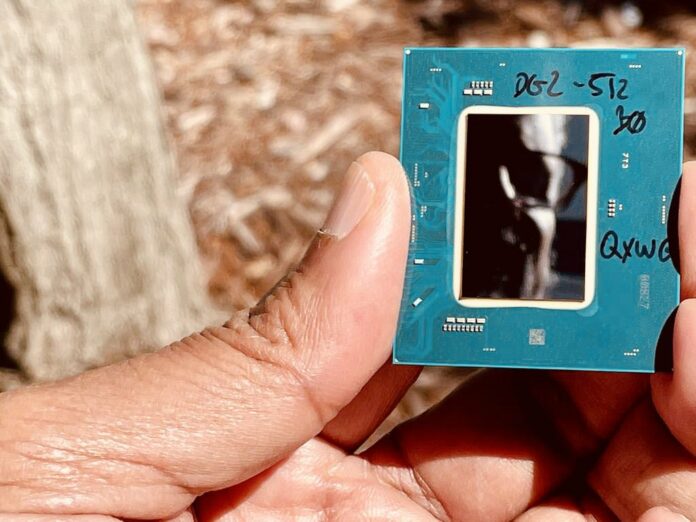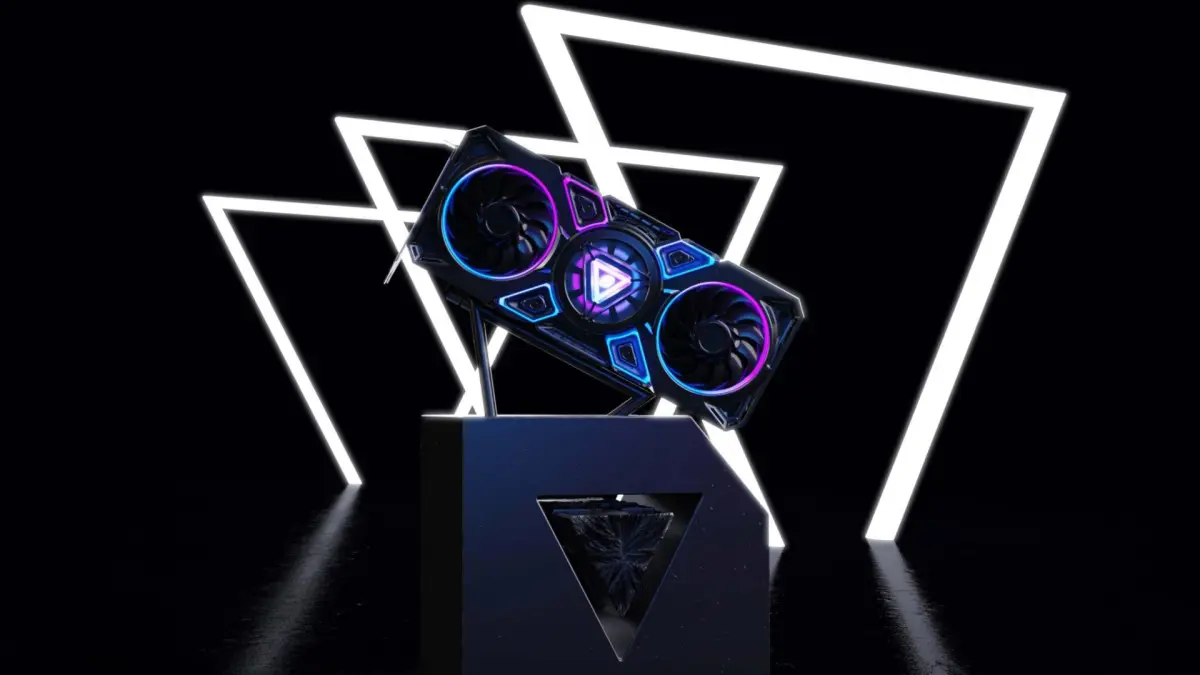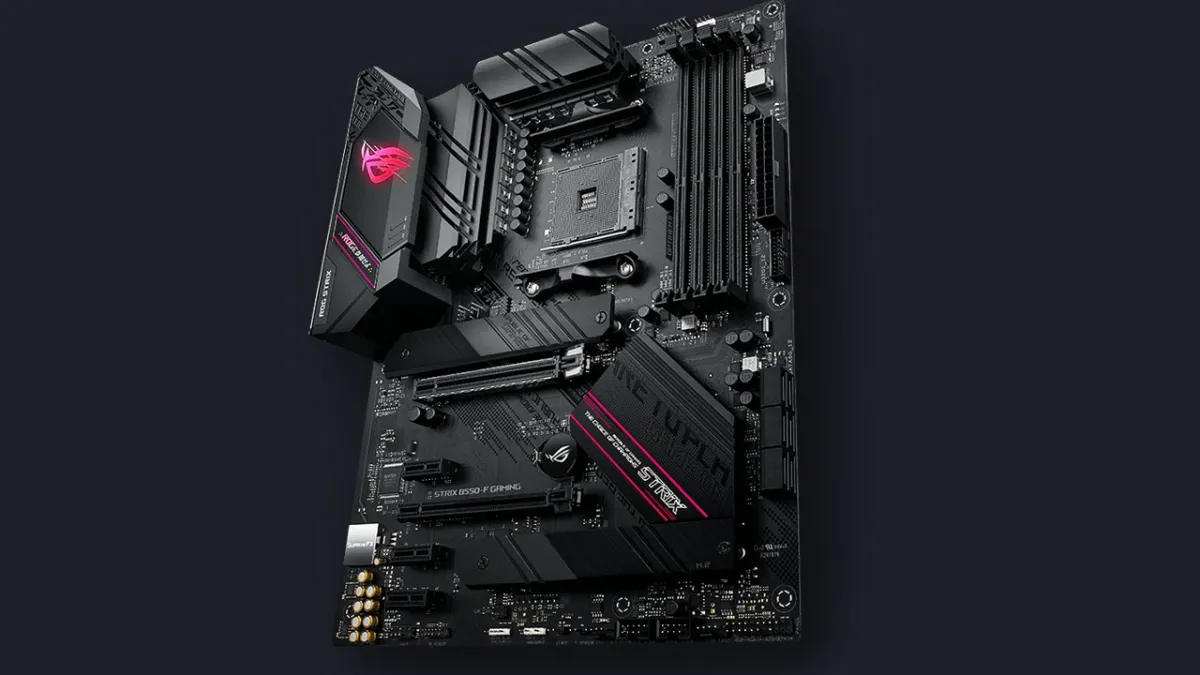After years of waiting, more information is finally becoming clear about Intel’s long-anticipated return to the discrete graphics card market. We’ve had to rely on uncertain leaks and projections for years, but it seems that performance estimates for the Intel ARC Alchemist graphics card lineup are now being shared with a high measure of confidence. The latest leak suggests that minimum performance for the top model is now projected to compete with the Nvidia RTX 3070, and that’s nothing to scoff at given current market conditions.
The leak comes from YouTuber Moore’s Law is Dead, who is known for his reliable track record with these kinds of leaks from AMD, Intel, and Nvidia. In a recent video, Moore’s Law is Dead confirmed that a reliable source from Intel is now confident that the upcoming ARC Alchemist graphics card lineup will indeed be competitive. He further noted that Intel is still shooting for higher performance through driver optimizations, with a possibility of even competing with the 3070 Ti.
This leak is also supported by Intel’s official specs. Just earlier this summer, Intel held its Architecture Day 2021, where it revealed technical details about the Xe HPG GPU architecture. AnandTech then did some number crunching and found the theoretical performance could indeed line up with current AMD and Nvidia offerings in the midrange.
An admirable first attempt
Intel’s upcoming lineup of GPUs will be built on TSMC’s denser and more advanced 6nm process node, which will give it a notable performance and efficiency advantage over Nvidia Ampere on Samsung’s 8nm process. With such an advantage, it seems reasonable that Intel could compete at least in the mid-range market. Additionally, ARC Alchemist is expected to be paired with more GDDR6 memory than most current Ampere GPUs, which will be attractive to content creators, professionals, and those gaming in higher resolutions. We still don’t know what the TDP and other specs will be, but it does sound like Intel can be competitive if these performance projections are accurate and there’s pricing to match.

Pictured is a top die for ARC Alchemist. Raja Koduri was one of the key people behind AMD’s RDNA graphics architecture, and he’s now playing on team Intel. He seems very enthusiastic when teasing his current work, which is promising.
Of course, it wouldn’t be in the spirit of competition for AMD and Nvidia to let Intel’s launch go unaddressed, and the graphics card market is starting to get very competitive again. Moore’s Law is Dead also noted that Nvidia has plans to address Intel’s launch with a possible Super refresh or more Ti models for the RTX 30 Series. For AMD, it’s reasonable to expect a refresh from TSMC’s 7nm node to 6nm. This would allow AMD to boost the performance of its Radeon RX 6000 GPUs by a few percentage points, possibly even into the low double digits.
Too little, too late? Perhaps not
As this will be Intel’s first serious foray into discrete graphics in years, there will need to be a lot of things it gets right with its graphics cards. The drivers will need to be stable, pricing will need to be competitive, and more importantly, it will need to convince consumers to try its products instead of sticking with pre-established competitors. There’s also the matter of timing, as Moore’s Law is Dead now expects Intel ARC Alchemist graphics cards not to launch until Q2 2022 due to performance optimization issues.

A render for the reference cooler design of Intel ARC Alchemist based on leaked information. (Image credit: Moore’s Law is Dead).
Aside from being a missed opportunity given current demand, it’s also important to consider the typical generational release cadence for graphics cards, which would put ARC Alchemist near the projected end of the current generation. That could be very problematic if AMD and Nvidia are set to release significantly more powerful graphics cards in late 2022.
However, Intel’s strategy for graphics seems to be a long-term plan. We already learned that it has several generations lined up in addition to technologies like XeSS to compete with Nvidia’s DLSS. Even if Alchemist is late to the game, it could be an excellent proof of concept for Intel and lead to some hot competition and aggressive pricing between Intel, AMD, and Nvidia in the years ahead. Considering the state of the current market, we’re certainly keen to see what happens.




